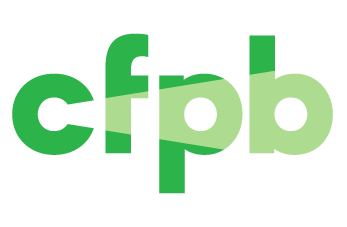 The Consumer Financial Protection Bureau today released its Notice of Proposed Rulemaking to implement the Fair Debt Collection Practices Act.
The Consumer Financial Protection Bureau today released its Notice of Proposed Rulemaking to implement the Fair Debt Collection Practices Act.
Years in the making, the proposed rules if adopted would bring significant changes to the form and manner of debt collector communications to consumers, credit reporting and litigation activity.
Interested parties will have 90 days from publication in the Federal Register to submit comments to the rules.
The rules are available here.
The Notice of Proposed Rulemaking covers a wide array of material; we look at a few of the most significant proposals below.
Call Frequency Cap
The NPRM would prohibit a debt collector to place “a telephone call to a particular person in connection with the collection of a particular debt either: (i) More than seven times within seven consecutive days; or (ii) Within a period of seven consecutive days after having had a telephone conversation with the person in connection with the collection of such debt. The date of the telephone conversation is the first day of the seven-consecutive-day period.”
In the case of a student loan debt, if the debt collector is collecting more than one student loan, then the loans are aggregated and cannot be treated separately when tallying the call count.
Voicemails
The NPRM introduces the concept of the “limited-content message” for voicemail messages. Limited-content messages would allow debt collectors to leave voicemails without disclosing that the purpose of the call is debt collection and does not render the message a “communication” under the FDCPA.
Email and Text Communications
The NPRM devotes significant coverage to the use of emails, text messages and other forms of electronic communications by debt collectors. At present, the FDCPA does not prohibit a debt collector’s use of emails or text messages.
The NPRM proposes that emails and texts include instructions for consumers to opt out of receiving emails and text messages. The rules also propose to exempt certain electronic communications from the federal E-Sign Act easing present burdens on debt collectors choosing to use electronic communications.
Validation Notices
A wide array of proposals impact the form, content and delivery of validation notices. Some of the proposed changes are:
- procedures for a debt collector to electronically provide validation notices;
- a safe harbor for debt collectors who deliver the validation notice in an email that is the “initial communication” with the consumer; and,
- a model validation notice (the proposed Model Form B-3 is included in Appendix B).
The FDCPA requires a debt collector to disclose the “amount of the debt” in validation notices. The NPRM introduces the concept of the “itemization date” and would require debt collectors to provide the amount of the debt on the itemization date. The itemization date could be the charge off date, the last statement date, the last payment date or the date of the last transaction. Debt collectors would then be required to provide an itemization of the “current amount of the debt in tabular format” that would include “interest, fees, payments and credits since the itemization date.”
Validation notices are also proposed to include a statement “that specifies what date the debt collector will consider the end date of the validation period.”
It is also proposed that validation notices include “consumer response information” eliciting a consumer’s dispute of the debt. Called “dispute prompts,” validation notices would be required to include several proposed dispute phrases (for example, “I want to dispute the debt because I think:”) or substantially similar phrasing. A prompt would also be required to allow the consumer to request information about the original creditor.
Time-Barred Debt
The NPRM would make it a violation of the FDCPA for a debt collector to “bring or threaten to bring a legal action” to collect a time-barred debt.
Webinar Series
Maurice Wutscher has produced a series of informational webinars covering the NPRM. RMAI members will receive 1.5 certification credits for completing each webinar.
Webinar 1 provides an overview of the NPRM and the proposals for validation notices. Click here to hear the replay.
Webinar 2 examines communications with consumers under the proposed rules. Click here to hear the replay.
Webinar 3 takes a closer look at validation, time-barred debt, litigation and attorney restrictions. Click here to hear the replay.



Looking forward to hearing your thoughts on this most important change Don.